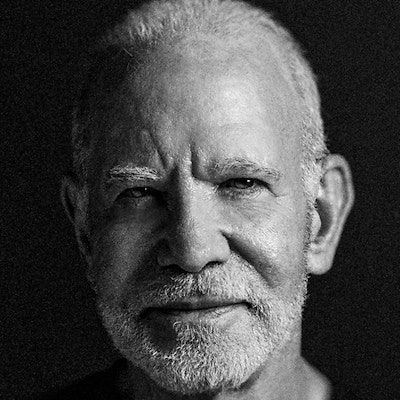
The evidence is now overwhelming. Dental disease is a proven multimorbidity factor in numerous health conditions -- conditions that are costliest to the healthcare system in both time and money. Driven not only by significant cost savings but also by the now well-documented improvement in health outcomes and care-gap closures of patients with chronic illnesses, integrating dentistry with primary care is a fait accompli.
The $3.8 billion healthcare system can realize much better health outcomes at far less cost when dentistry is integrated into the system. At 17% of the gross domestic product (GDP), healthcare costs need to be tightly managed and reduced. With dentistry, which is less than 5% of the total healthcare costs, now able to save the healthcare system between an estimated 10% to 30% of overall care delivery costs with markedly improved health outcomes, it's another powerful force that will drive medical-dental integration.
 Dr. Marc Cooper.
Dr. Marc Cooper.After more than 20 years, research has answered many questions: What systemic damage is caused by periodontal inflammation, caries, and sleep apnea? Now people are asking a different set of questions. How will the integration of primary care in the dental practice affect the current dental practice business model? What resources and people will dental practices require to make an integrated model work? What kind of relationships outside the practice need to be established and managed for integration to work? What will be the effect if Medicare adds dental benefits, and how will this affect dental practices? How will dentists react to being part of a medical cohort team with physicians and hospitals treating mutual patients, and how will dentists get paid?
Today, there is exploding activity by leading business innovators of dental service organizations (DSOs), dentists in small group practices, third parties, suppliers, hospitals, and hospital systems, each now fully engaged and moving forward in integrating primary care in dental practices. These leaders are establishing new kinds of relationships well beyond the walls of the dental practice -- hospitals, medical insurers, physician groups, and large employers. These leaders are figuring out how to make it work commercially as integration unfolds.
Integration's time has come. But most dentists and their dental practices, as well as their professional organizations, are asleep at the wheel. Open your eyes. Just look at what's going on, what's being written, spoken, and gossiped. Hundreds upon hundreds of research articles, case studies, and soon powerful cohort studies will be available. The involvement of prestigious think tanks, top universities, and conferences, all focused on medical-dental integration, is happening right now. The "Big Bang" has banged.
Dentists and their stakeholders in dental practice need to wake up to the overwhelming evidence proving beyond a doubt that gingival inflammation, caries, and sleep apnea are key factors in numerous health conditions. It's now well-documented that healthier teeth and gums provide significant greater overall health benefits and effective care-gap closures. Furthermore, many primary care functions can be performed in the dental office, yielding better patient compliance while saving the healthcare system millions upon millions of dollars.
Integrating dentistry into the healthcare system will yield enormous cost savings for patients, employers, federal and state governments, hospitals, and payers. Reducing costs and increasing efficiencies, along with better health outcomes, is where the healthcare system is going. In medicine, the current drive for value-based care/pay-for-performance reimbursement is a clear indication the healthcare system is moving toward greater integration since the patient's health, not procedures, will decide reimbursement.
It's time to wake up. Time to get educated. Time to read the literature and reports from the Santa Fe Group and the Harvard Initiative. Time to rethink what the dental practice will become when it's integrated with primary care. Why? Because this is the future that's absolutely going to happen.
Late to the party, playing catch-up, not believing it will happen, is being asleep. The alarm is ringing. It's time to wake up.
Dr. Marc Cooper is the president of MBC Consultants. Cooper has worked throughout the healthcare industry during his career, with the majority of his clients being in the dental industry. His current focus is coaching leaders, dentists, and senior executives on how to effectively navigate their organizations and lead their respective teams during this period of tremendous uncertainty.
The comments and observations expressed herein do not necessarily reflect the opinions of DrBicuspid.com, nor should they be construed as an endorsement or admonishment of any particular idea, vendor, or organization.


















